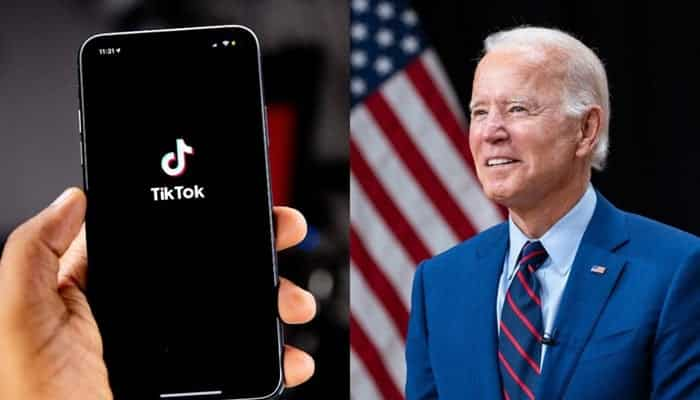US President Signs Bill Potentially Banning TikTok
On April 24, US President Joe Biden signed a bill into law that could ban Chinese social media app TikTok. The law requires the app to either disassociate from its Chinese parent ByteDance or face a complete ban.
Outrage in the TikTok Community
While the ban may still take years to come into effect, it has already infuriated the TikTok community. Many creators, with millions of followers, have spoken out against the law, accusing the government of jeopardizing their livelihood.
Several creators recently traveled to the Capitol to oppose the law and stage protests.
“You’re taking away our First Amendment rights,” said creator Ophelia Nichols, known as “shoelover99” on TikTok. The TikToker, popular for her lifestyle content with over 12.5 million followers, expressed her concerns about the impact of the potential ban.
“TikTok allows small businesses and creators to find their people in their community,” Ophelia emphasized, highlighting the sense of community and support that the platform offers.
Anti-Government Movement on TikTok
A movement has erupted on the app itself, with creators posting over 585,000 videos using hashtags like #KeepTikTok and #SaveTikTok. Some are accusing the Biden administration of hypocrisy in supporting the ban while utilizing TikTok for campaign purposes.
“There’s a core hypocrisy to the Biden administration supporting the TikTok ban while at the same time using TikTok for his campaign purposes,” expressed Kahlil Greene, known as the “Gen Z Historian” on TikTok with over 650,000 followers.
TikTok has transformed into a significant source of news and entertainment for the American audience over the years.
The Influence of TikTokers
With over 170 million users in the US alone, TikTok has a substantial impact on American society. A Pew Research Center survey revealed that about a third of under-30 US adults rely on TikTok for their daily news consumption, showcasing the significant influence TikTokers have on the American audience.
According to an AP-NORC poll conducted in January, the under-30 adult US population is more likely to oppose a ban on the app. However, only 30% of all US adults are likely to oppose the ban.
















































